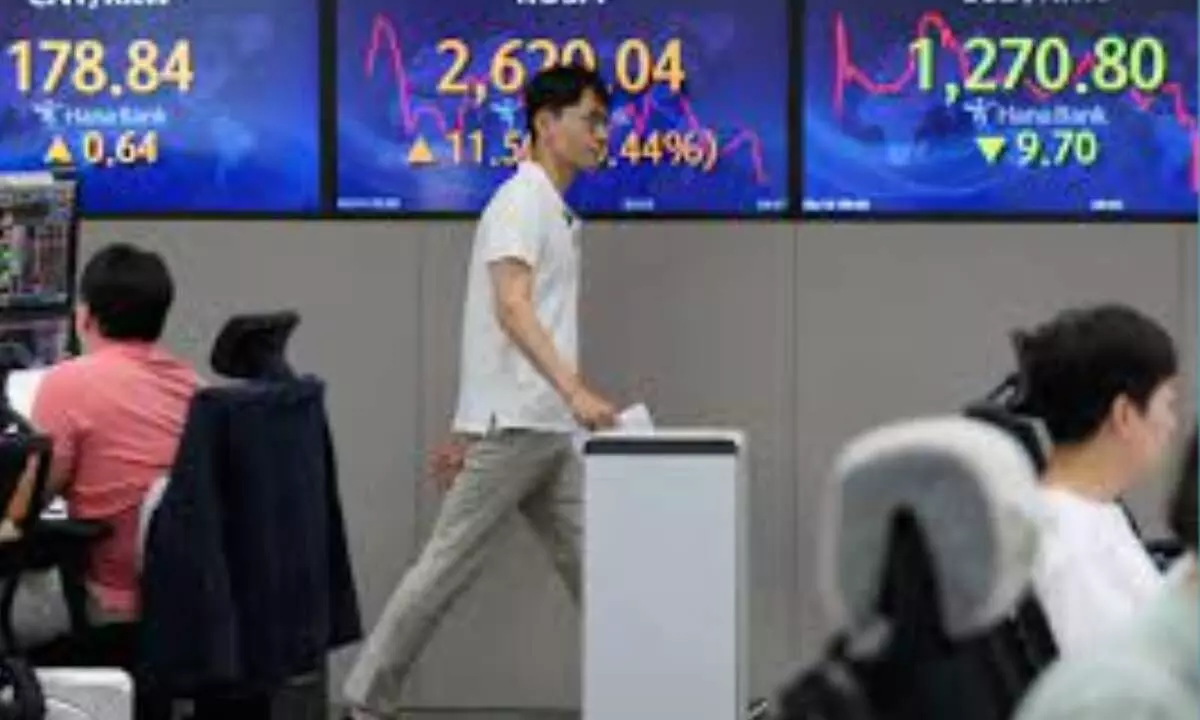Asian stocks track Wall St rally on positive data
Nikkei 225, Australia’s S&P/ASX 200, Kospi, Hang Seng and Shanghai index gained, along with low volatility buoying mkts on back of strong US economic data, wiping recession concerns
image for illustrative purpose

Tokyo Asian shares were mostly higher Monday after a rally on Wall Street driven by reports that showed inflation abating, alleviating fears over the threat of a recession.
Japan’s benchmark Nikkei 225 rose 1.7 per cent to 33,753.33 in afternoon trading. Australia’s S&P/ASX 200 added 0.6 per cent to 7,248.10. South Korea’s Kospi jumped 1.4 per cent to 2,599.62. Hong Kong’s Hang Seng surged 2.1 per cent to 19,305.10, while the Shanghai Composite gained 1.3 per cent to 3,242,41. “Asia gets the new half kicked off amid a growing sense of optimism, with low volatility buoying markets on the back of a surprisingly strong run of US economic data, wiping the slate clean of recession concerns,” Stephen Innes, managing partner at SPI Asset Management, said in a report. The quarterly “tankan report” of business sentiment compiled by the Bank of Japan showed an improvement for the fifth consecutive quarter, from June last year, with the main indicator number rising by 3 points to plus 23.
Wall Street closed a winning week last week, with the S&P 500 climbing 1.2 per cent to 4,450.38 levels, it is the highest level since April 2022. The Dow Jones Industrial Average rose 0.8 per cent to 34,407.60 and the Nasdaq composite jumped 1.4 per cent to 13,787.92. US trading closed for half a day Monday and all of Tuesday for the Independence Day holiday. Investors are hoping price increases will ease enough for the Federal Reserve to soon halt its hikes to interest rates. That would mean less pressure for the US economy and for global financial markets. A report on Friday showed a measure of inflation that the Fed prefers to use eased in May. It also said growth in spending by consumers slowed by more than expected. If fewer dollars are chasing after purchases, that could remove more pressure on inflation.

